SOURCE: IANRANKIN.NET
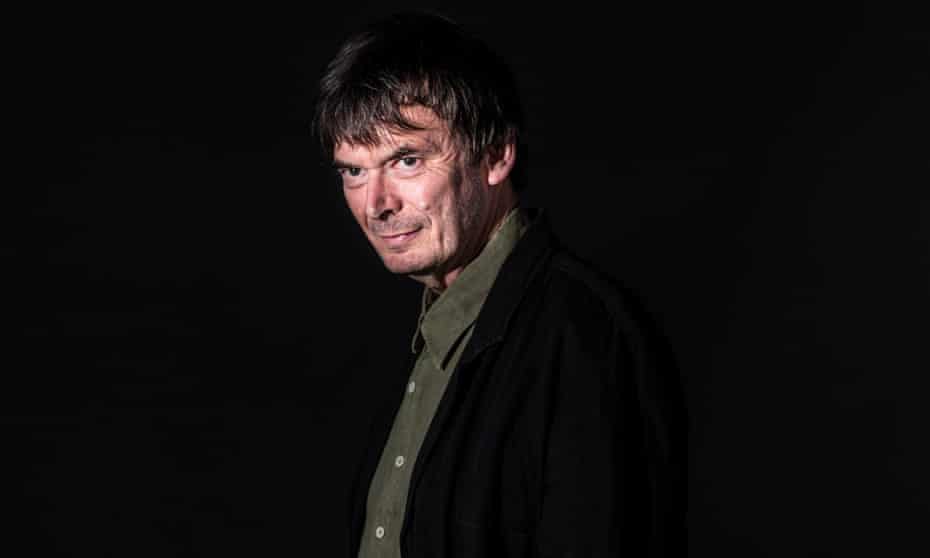
Born in the Kingdom of Fife in 1960, Ian Rankin graduated from the University of Edinburgh in 1982, and then spent three years writing novels when he was supposed to be working towards a PhD in Scottish Literature.
After university and before his success with his Rebus novels, Ian had a number of jobs including working as a grape-picker, a swineherd, a journalist for a hi-fi magazine, and a taxman. Following his marriage in 1986, he lived briefly in London where he worked at the National Folktale Centre, followed by a short time living in France, before returning to Edinburgh.
Ian’s first novel Summer Rites remains in his bottom drawer, but his second novel, The Flood, was published in 1986, while his first Rebus novel, Knots & Crosses, was published in 1987. The Rebus series is now translated into twenty-two languages and the books are bestsellers on several continents. In addition to his Rebus and Malcolm Fox novels, he has also written standalone novels including Doors Open, which was televised in 2012, short stories, a graphic novel – Dark Entries – and a play (with Mark Thomson, the Royal Lyceum Theatre’s Artistic Director) Dark Road, which premiered at the Lyceum Theatre, Edinburgh, in September 2013. A second play, Long Shadows, starring John Rebus, was co-written with Rona Munro and staged in 2018. There are also a number of novels under the pseudonym ‘Jack Harvey’ and in 2005 he collaborated with singer Jackie Leven on a CD. His non-fiction book Rebus’s Scotland was published in 2005.
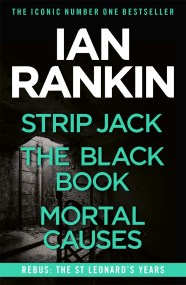
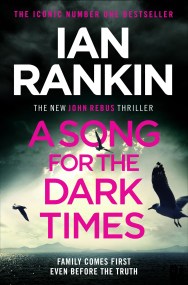
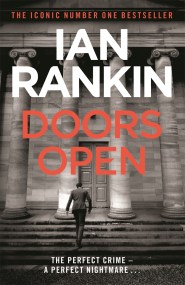
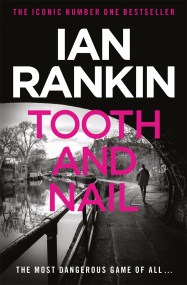
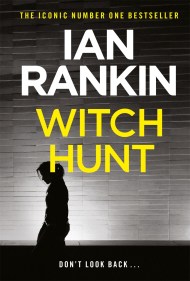
WHY IS IAN RANKIN IN THE NEWS?
The Dark Remains by Ian Rankin and William McIlvanney is out in paperback on 9 June.
THE GUARDIAN CAME OUT WITH AN INTERVIEW WITH IAN RANKIN, READ BELOW THE EXCERPT:
Ian Rankin: ‘The Prime of Miss Jean Brodie is a perfect gem of a story’
The crime writer on being fascinated by A Clockwork Orange, inspired by Dr Jekyll and Mr Hyde and taking comfort in Muriel Spark’s novel
My earliest reading memory
I read children’s comics voraciously from a very young age, starting with Bimbo (aged four or five) and progressing via the Dandy and Beano to the Victor and the Hotspur. Then there were the comic strips in the Sunday Post newspaper – Oor Wullie and the Broons. I did try drawing my own comics, but wasn’t much of an artist. I do still read comics, by the way – and I credit them with being my gateway drug to literature.
My favourite book growing up
In my pre-teen years it was mostly Ladybird books and Enid Blyton. I don’t remember ever reading Winnie the Pooh or Thomas the Tank Engine, and didn’t encounter Dr Seuss until I was a parent myself. The only real books I kept and returned to were the comics’ Christmas annuals. I was also a sucker for TV tie-ins, so would have annuals based on the Gerry Anderson shows (Joe 90; Captain Scarlet) or Dr Who or The Persuaders!.
The book that changed me as a teenager
A Clockwork Orange by Anthony Burgess. I was 14 or 15 when I read it. A whole bunch of pulp paperbacks with titles such as Skinhead or Suedehead used to be passed around the school playground, but I felt that A Clockwork Orange was of a different order of merit. It felt very literary to me. There was a moral purpose to it; the language was fascinating. While my friends were hanging around street corners waiting for trouble, I would be sequestered in my bedroom, writing stories influenced by Burgess’s short sharp novel.
The writer who changed my mind
Joseph Heller, especially for Catch-22, which I studied at secondary school. I was the “clever one” in my family and was destined to be the first to attend university. My parents thought that accountancy would be a good subject to study, as there would be a decent career at the end of it. But I was falling in love with the world of books, and Catch-22 made me want to study American literature. I persuaded them that I should study literature at Edinburgh University.
The author who made me want to be a writer
William McIlvanney was a huge influence on me in my early 20s. He came from a similar background and wrote exquisitely about the world around him. He had won the Whitbread prize in 1975 for his novel Docherty, but he also wrote crime fiction. I saw that crime was a way of dissecting society and its varied problems, discussing big themes while being entertaining and thrilling. In 1985 at the Edinburgh book festival I pressed my copy of Docherty into McIlvanney’s hand, explaining that I was in the process of writing about Edinburgh the way he wrote about Glasgow in his Inspector Laidlaw novels. He inscribed my book “Good luck with the Edinburgh Laidlaw”.
